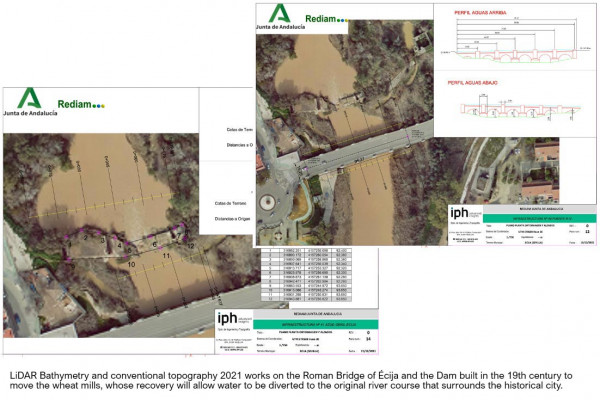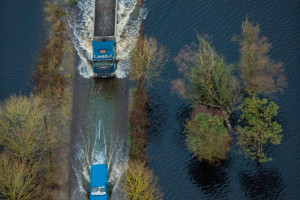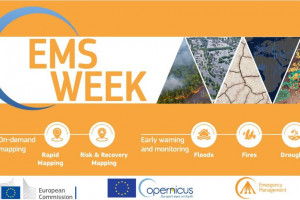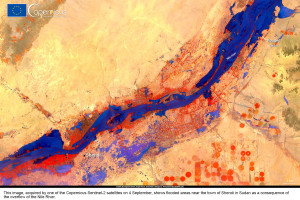THE PROJECT
Floods are Climate Change phenomena that most people affect in the Atlantic Area, through increasingly intense rains that overflow rivers and creates runoffs in urban areas. In the EU costs overpass 1,500 lives and 52,000 M€ over the past 20 years.
It is a matter of National and Regional Governments, but also of Local Authorities and Communities, Water Companies, Science, NGOs. AA- FLOODS aims to join all these actors to build and test new tools, plans and regulations to enhance Flood Risks Management and Response.

PREVENTION
In Prevention AA-FLOODS includes a complete set of actions to respond the challenges of Floods Prevention at Local Scale.
It begins with a Diagnosis of the Atlantic Area policies against Floods: preventive planning, institutions involved, warning systems, emergency protocols will be analysed to allow AA-FLOODS the development of useful and transferable products for the AA.
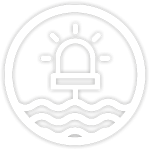
EARLY WARNING
The project will implement specific actions on early warning, focused on capturing accurate data with the maximum anticipation and transforming it into useful information for emergency management.
An effort will be done on facilitate the access and use of EFAS meteorological pre-alert information currently generated and distributed by the EU to National and Regional authorities, to be exploited at local scales where people live and damage occurs.

CRISIS MANAGEMENT
In Floods Crisis Management inter-administrative coordination plays a special role, and in a singular way, the management of reservoirs:
Floods put hydroelectric, irrigation or regulation dams at risk and therefore reservoir’s managing authorities discharge large volumes of water before when its pressure overpasses certain levels.
These discharges occur just when the rivers are at the limit of overflowing, or already overflowed, and aggravate the effect of flooding on downstream populations.

ASSISTANCE & RECOVERY
The last phase in a Flood Emergency is the assistance to the affected people. Two Activities will be developed:
The Improvement of the evacuation protocols, not so much in the logistical aspects as in the handling of information and the hierarchy of the target groups.
Improvements in current protocols as, for example, in the Prevention phase, boosting cooperation among Social Services, Urban Planning, Cadastre, and Rescue teams to identify and geo-locate people with reduced mobility, which would be the priority evacuation group in the areas of greatest risk.

PREVENTION
In Prevention AA-FLOODS includes a complete set of actions to respond the challenges of Floods Prevention at Local Scale.
It begins with a Diagnosis of the Atlantic Area policies against Floods: preventive planning, institutions involved, warning systems, emergency protocols will be analysed to allow AA-FLOODS the development of useful and transferable products for the AA.

EARLY WARNING
The project will implement specific actions on early warning, focused on capturing accurate data with the maximum anticipation and transforming it into useful information for emergency management.
An effort will be done on facilitate the access and use of EFAS meteorological pre-alert information currently generated and distributed by the EU to National and Regional authorities, to be exploited at local scales where people live and damage occurs.

CRISIS MANAGEMENT
In Floods Crisis Management inter-administrative coordination plays a special role, and in a singular way, the management of reservoirs:
Floods put hydroelectric, irrigation or regulation dams at risk and therefore reservoir’s managing authorities discharge large volumes of water before when its pressure overpasses certain levels.
These discharges occur just when the rivers are at the limit of overflowing, or already overflowed, and aggravate the effect of flooding on downstream populations.

ASSISTANCE & RECOVERY
The last phase in a Flood Emergency is the assistance to the affected people. Two Activities will be developed:
The Improvement of the evacuation protocols, not so much in the logistical aspects as in the handling of information and the hierarchy of the target groups.
Improvements in current protocols as, for example, in the Prevention phase, boosting cooperation among Social Services, Urban Planning, Cadastre, and Rescue teams to identify and geo-locate people with reduced mobility, which would be the priority evacuation group in the areas of greatest risk.
OUR PARTNERS


ARECIAR

JUNTA DE ANDALUCÍA

ÁGUAS DO ALGARVE

BRITISH RED CROSS

TRINITY COLLEGE DUBLIN

BOREAS

UNIVERSIDAD DA CORUÑA

THE RIVERS TRUST

UNIVERSITÉ DE NANTES
NEWS
AA-FLOODS spin-off funded with € 4M
The FLUBIOGENIL project, led by Écija, one of AA-FLOODS pilot cities, has obtained €3.8M in Next Generation financing, which together with municipal financing will represent €3.99M to develop Nature-Based Solutions for actions on flood risk mitigation and prevention, fluvial ecosystems recovery and fluvial restoration in the Genil River. The project has been prepared for the ...
Transport infrastructure damaged by floods has a detrimental impact on recovery – the Irish experience
To plan, prevent, prepare, protect and recover after a hazard such as a flood, a thorough understanding of the impact
CEMS WEEKS begins its cycle of conferences on floods
The Copernicus Emergency Management Service (CEMS) celebrates CEMS Week 2021, in which an update of the Service will be made,
Let’s take action now before it’s too late!
National and regional governments, local authorities and communities, water corporations, and scientists must collaborate urgently to enhance flood prevention, warning,
